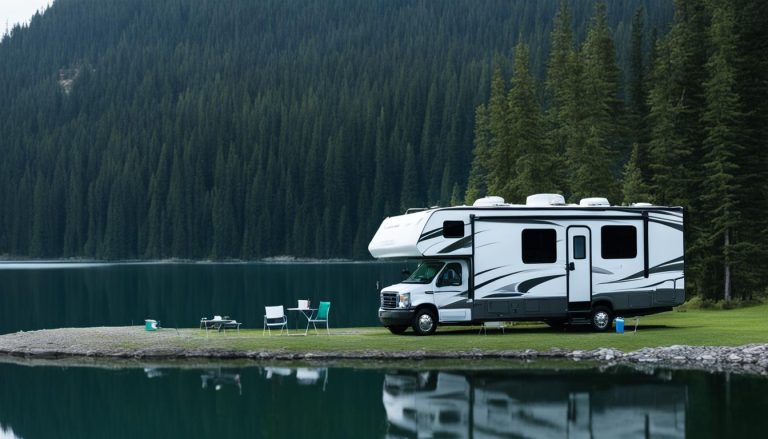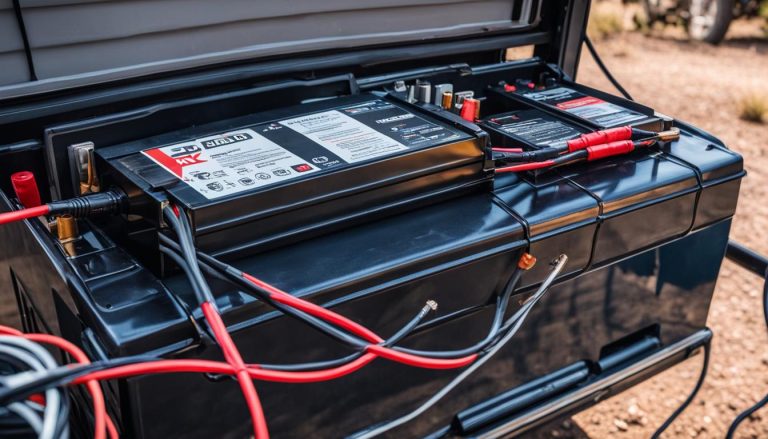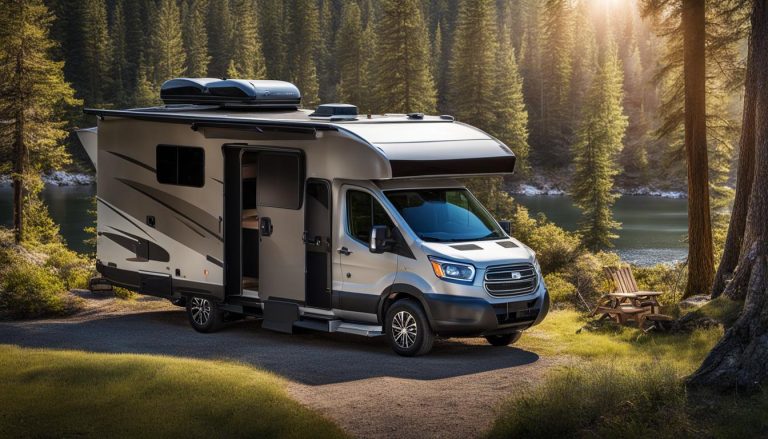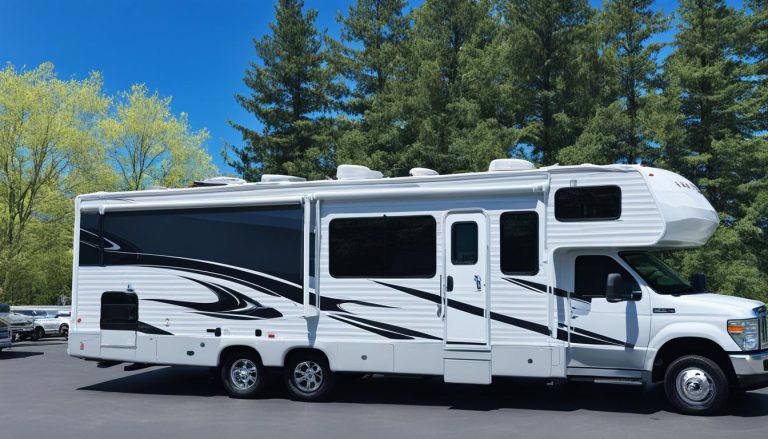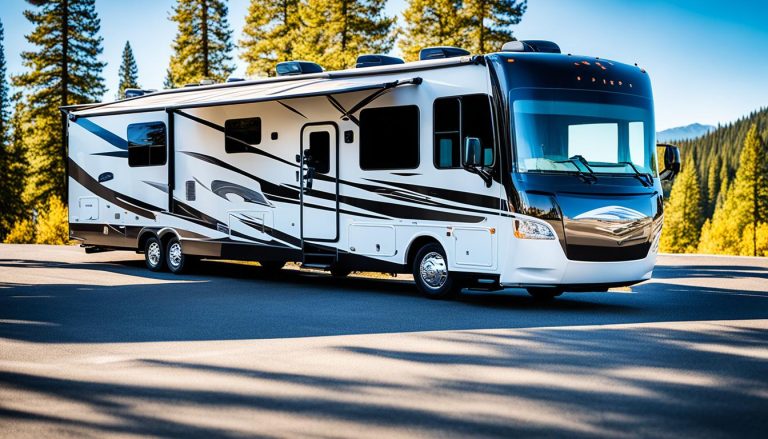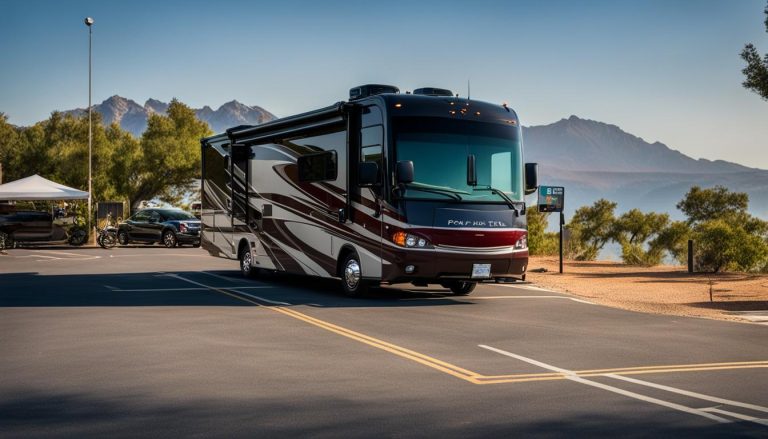What Is a RV? Your Ultimate Guide to Recreational Vehicles
gorvlifestyle.com and its partners may earn a commission if you purchase a product through one of our links
Welcome to your ultimate guide to recreational vehicles (RVs). Whether you’re a seasoned traveler or new to the world of RVing, this comprehensive guide will provide you with everything you need to know about RVs, including the different types, their pros and cons, and how to choose the perfect one for your lifestyle.
An RV, short for recreational vehicle, is a camping unit on wheels that allows you to travel and experience the great outdoors with all the comforts of home. From motorhomes to trailers, there are RVs to suit every preference and budget.
RVs provide the freedom to explore the open road and venture off the beaten path. Whether you’re planning a weekend getaway or a cross-country adventure, an RV offers the flexibility to travel at your own pace and create unforgettable memories along the way.
Throughout this guide, we’ll explore the different types of RVs, including motorhomes and towables, and delve into the pros and cons of each. We’ll also discuss the various classes of motorhomes, the considerations for choosing between gas and diesel engines, as well as the different types of towables. Additionally, we’ll touch on other RV types that may pique your interest.
Key Takeaways:
- An RV is a camping unit on wheels that provides the freedom to travel and experience the outdoors with all the comforts of home.
- RVs come in various types, including motorhomes and towables, each with their own advantages and considerations.
- Motorhomes are divided into three classes: Class A, Class B, and Class C, each offering different features and price ranges.
- Choosing between a gas or diesel engine for your motorhome depends on factors such as budget and personal preference.
- Towables include conventional travel trailers and fifth-wheel trailers, with each offering unique benefits.
Now that we have laid the foundation, let’s dive deeper into the world of RVs and explore all the exciting possibilities they offer.
Motorhomes vs. Towables: Understanding the Two General RV Categories
When it comes to RVs, there are two main categories to choose from: motorhomes and towables. Each category offers unique features and benefits, catering to different preferences and needs. Understanding the differences between motorhomes and towables will help you make an informed decision on which type is right for your adventures.
Motorhomes: The All-in-One Package
Motorhomes, as the name suggests, are self-powered vehicles that provide both transportation and living space. They come in various sizes and classes, ranging from compact Class B motorhomes to spacious Class A motorhomes.
One of the key advantages of motorhomes is their convenience and ease of use. You don’t need a separate vehicle to tow them, which means quicker setup at a campsite and more time to relax and enjoy your surroundings. Additionally, motorhomes offer a comfortable and enjoyable ride for passengers, making them ideal for those who prioritize comfort on the road.
Towables: Flexibility and Affordability
Towables, on the other hand, require another vehicle, typically a pickup truck or SUV, to tow them. They include travel trailers, fifth-wheel trailers, folding camping trailers, hybrid trailers, teardrop trailers, and truck campers.
Towables are often more affordable than motorhomes, making them a popular choice for those on a budget. They also provide the flexibility to unhitch and leave the campsite with a separate vehicle, which can be beneficial for exploring local attractions or running errands.
Which Is Right for You?
Choosing between a motorhome and a towable ultimately depends on your preferences, budget, and travel plans. If you value convenience, comfort, and a self-contained living space, a motorhome may be the right choice for you. On the other hand, if you’re looking for affordability, flexibility, and the ability to use a separate vehicle, a towable may be more suitable.
Consider your lifestyle, travel goals, and budget to determine which category of RV aligns with your needs. Both motorhomes and towables offer unique experiences and the freedom to explore the open road, allowing you to embark on unforgettable adventures.
Types of Motorhomes: Class A, Class B, and Class C
When it comes to motorhomes, there are three main types to choose from: Class A, Class B, and Class C. Each class offers unique features and advantages, catering to different lifestyles and preferences.
Class A Motorhomes
Class A motorhomes are the largest and most luxurious option. They have a bus-like shape and are built on a heavy-duty chassis. With spacious interiors, these motorhomes often feature high-end finishes, modern amenities, and plenty of storage space. Class A motorhomes are ideal for long trips or full-time living, offering a comfortable and luxurious home on wheels.
Class B Motorhomes
Class B motorhomes, also known as camper vans or conversion vans, are smaller and more compact. They are typically built on a van chassis and are easier to drive and maneuver, making them suitable for both city streets and outdoor adventures. Despite their smaller size, Class B motorhomes still offer essential amenities such as a bed, kitchenette, and bathroom, providing a cozy and convenient camping experience.
Class C Motorhomes
Class C motorhomes are a popular choice for families and those seeking a balance between luxury and maneuverability. These motorhomes are built on a medium-duty truck chassis and have a distinctive overhang above the cab, which is often used as additional sleeping space. Class C motorhomes offer ample storage, comfortable living areas, and various floor plans to accommodate different needs.
When it comes to choosing the right motorhome, consider factors such as size, amenities, budget, and intended usage. Whether you prefer the spaciousness of a Class A, the agility of a Class B, or the versatility of a Class C, there is a motorhome that will suit your needs and help you embark on memorable adventures.
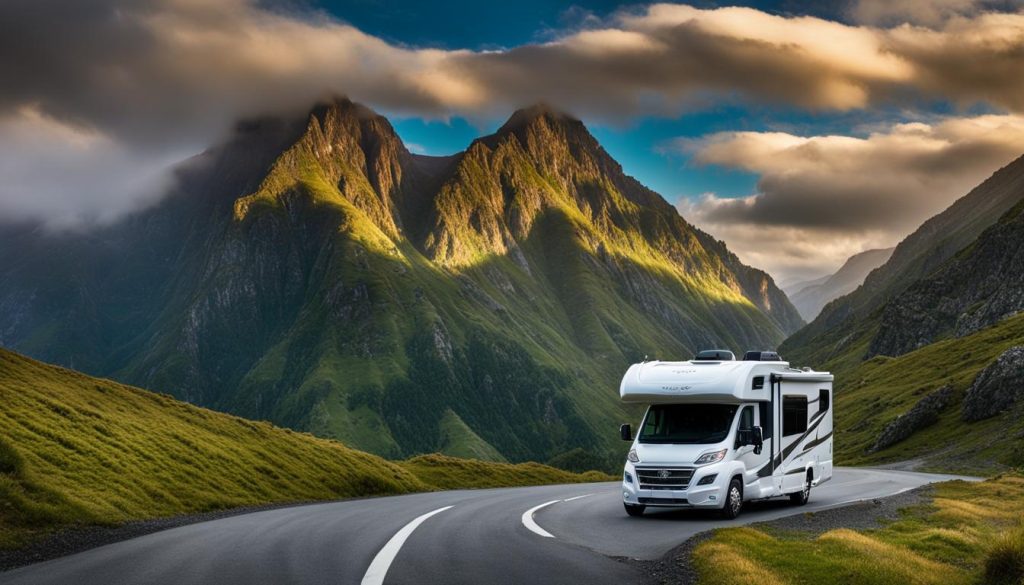
Gas vs. Diesel Engines: Considerations for Motorhomes
When it comes to choosing the right engine for your motorhome, the decision often boils down to gas or diesel. Both options have their advantages and it’s important to consider your priorities before making a choice.
Gasoline-Powered Motorhomes
Gasoline engines are commonly found in smaller motorhomes and are generally more affordable upfront. These engines provide sufficient power for most recreational use and are easier to maintain and service. Gasoline is readily available at gas stations across the country, making refueling convenient during your travels.
Diesel-Powered Motorhomes
On the other hand, diesel engines are known for their durability and longevity. They can handle heavy loads and offer more power, making them ideal for driving up steep mountain passes and challenging terrains. Additionally, diesel engines provide better fuel mileage, allowing you to travel longer distances on a single tank. However, both diesel fuel and repairs can be more expensive compared to gasoline.
“Diesel engines are built to last, providing reliable performance and greater towing capacity for motorhome enthusiasts who crave power and durability.” – RV Expert
When choosing between gas and diesel engines for your motorhome, consider factors such as your budget, desired driving experience, and long-term maintenance costs. If you plan on traveling long distances or tackling rugged terrains, a diesel engine might be the better option. However, if affordability and ease of maintenance are your top priorities, a gasoline-powered motorhome could be the right choice for you.
It’s also worth noting that advancements in engine technology have led to improved efficiency and performance in both gas and diesel engines. Ultimately, the choice between gas and diesel comes down to personal preference and understanding your individual needs as an RVer.
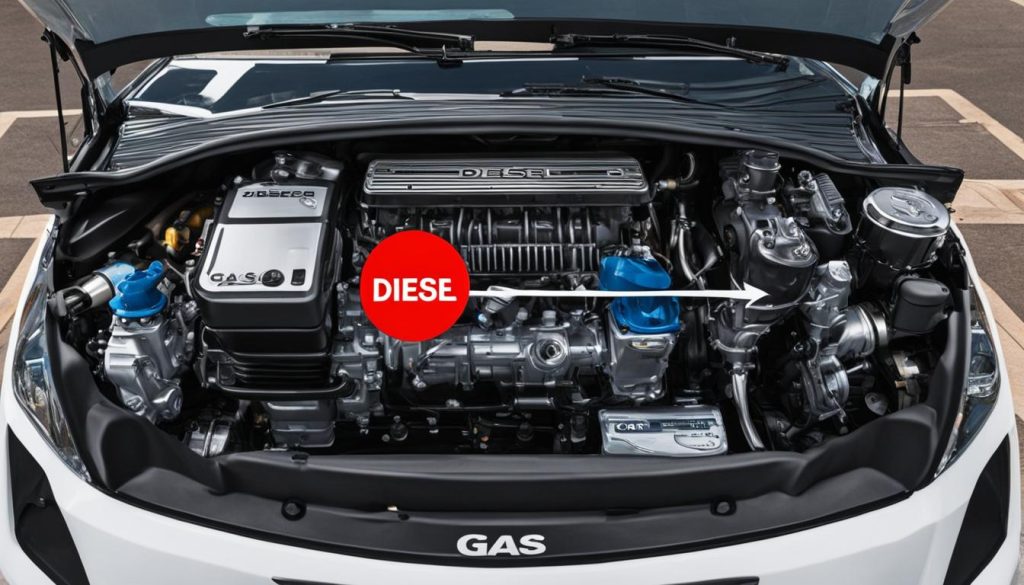
| Gas Engines | Diesel Engines |
|---|---|
| More affordable upfront | Longer lifespan and durability |
| Easier maintenance and service | More power for challenging terrains |
| Widely available gasoline fuel | Better fuel mileage |
| Less expensive fuel and repairs | Increased towing capacity |
Types of Towables: Conventional Travel Trailers and Fifth-Wheel Trailers
Towable RVs are a popular choice for adventure seekers who want the flexibility of towing their RV behind a vehicle. There are two main types of towables: conventional travel trailers and fifth-wheel trailers.
Conventional Travel Trailers:
- Conventional travel trailers are the most common type of towable RV. They come in various sizes and floor plans, ranging from small and compact to large and luxurious.
- These trailers are typically pulled by a hitch at the rear of a towing vehicle, such as a pickup truck or SUV.
- Conventional travel trailers offer a wide range of amenities and can comfortably accommodate small to large families.
- They are an affordable option, with prices ranging from $12,000 to $120,000 depending on the size, features, and brand.
Fifth-Wheel Trailers:
- Fifth-wheel trailers are larger and offer more living space compared to conventional travel trailers.
- These trailers have a unique hitch design that is mounted in the bed of a pickup truck, providing additional stability and towing capacity.
- Fifth-wheel trailers are known for their luxurious features, such as spacious interiors, multiple slide-outs, and high-end amenities.
- The higher ceilings in fifth-wheel trailers create a more residential feel and allow for taller individuals to comfortably move around.
- Due to their larger size and additional features, fifth-wheel trailers are generally more expensive, with prices ranging from $30,000 to $200,000.
Before choosing a towable RV, it’s important to consider your towing vehicle’s capabilities. Check its towing capacity and ensure that it can safely tow the chosen trailer.
| Type | Description | Price Range |
|---|---|---|
| Conventional Travel Trailers | The most popular type of towable RVs that come in various sizes and floor plans. | $12,000 – $120,000 |
| Fifth-Wheel Trailers | Larger trailers with a unique hitch design that provides stability and extra towing capacity. | $30,000 – $200,000 |
Other RV Types: Folding Camping Trailers, Hybrid Trailers, Teardrops, and Truck Campers
While motorhomes and towables are the most well-known types of RVs, there are other options available that cater to different preferences and lifestyles. Explore these unique RV types to find the perfect fit for your camping adventures.
Folding Camping Trailers
Folding camping trailers, also known as pop-up campers or tent trailers, are compact and lightweight travel options. These RVs feature collapsible walls that can be expanded when parked, providing additional living and sleeping space. They are easy to tow and offer a more affordable alternative to larger RVs. Folding camping trailers are ideal for outdoor enthusiasts who enjoy a blend of camping and RV comforts.
Hybrid Trailers
Hybrid trailers combine the best features of traditional travel trailers and tent camping. These RVs have hard-sided construction with expandable tent-like sections that can be set up to increase living space. Hybrid trailers offer versatility and mobility while providing the convenience of modern amenities. They are suitable for those seeking a camping experience with the convenience of a towable RV.
Teardrop Trailers
Teardrop trailers are small, compact, and lightweight towable RVs. They are characterized by their teardrop shape and retro-inspired design. Despite their small size, teardrop trailers typically provide basic amenities such as a bed, kitchenette, and storage space. These cozy RVs are perfect for solo travelers or couples who prefer a minimalist camping experience.
Truck Campers
Truck campers, also known as slide-in campers, are designed to be loaded onto the bed of a pickup truck. These RVs offer the ultimate flexibility, allowing you to detach the camper and use your truck for other purposes. They come in various sizes and configurations, offering sleeping quarters, kitchenette, and bathroom facilities. Truck campers are an excellent choice for those who already own a pickup truck and want a versatile RV option.
RV Brands and Manufacturers
When it comes to purchasing an RV, the brand and manufacturer play a vital role in ensuring quality, reliability, and customer satisfaction. In the United States, there are three major RV brands that stand out among the rest: Forest River, THOR Industries, and Winnebago Industries.
Forest River is known for its diverse range of RV models and types. Whether you’re in the market for a motorhome, travel trailer, or fifth-wheel trailer, Forest River has something to offer. Their commitment to innovation and attention to detail make them a trusted choice among RV enthusiasts.
THOR Industries, a leading RV manufacturer, is renowned for its exceptional craftsmanship and cutting-edge designs. With an extensive lineup of Class A, Class B, and Class C motorhomes, THOR Industries caters to the needs of every traveler, from first-time RV owners to experienced adventurers.
Winnebago Industries, a household name in the RV industry, has been manufacturing top-quality motorhomes for over 60 years. Known for their iconic Class A models, Winnebago Industries delivers comfort, luxury, and durability. Their commitment to customer satisfaction is unparalleled.
While these three brands dominate the market, there are also numerous smaller, niche RV manufacturers that offer unique features and specialized models. These manufacturers cater to specific needs and preferences, allowing you to find an RV that perfectly suits your lifestyle.
Purchasing an RV is a significant investment, so it’s crucial to research and learn more about the brands and manufacturers available. By understanding their reputations, product offerings, and customer reviews, you can make an informed decision and find the RV of your dreams.
FAQ
What is an RV?
An RV, short for recreational vehicle, refers to any camping unit on wheels, including motorhomes, trailers, and more. It provides a means of transportation and a place to sleep and live comfortably while on the road.
What are the different types of RVs?
RVs can be divided into two major categories: motorhomes and towables. Motorhomes are self-powered by an engine, while towables require another vehicle, usually a pickup truck, to tow them. There are also various subcategories within these two main types, such as Class A, Class B, and Class C motorhomes, as well as conventional travel trailers and fifth-wheel trailers.
What are the advantages of motorhomes?
Motorhomes offer faster setup at a campsite and a more enjoyable ride for passengers. They also provide more living space and amenities compared to towables.
What are the advantages of towables?
Towable RVs are more affordable compared to motorhomes. They allow you to easily leave the campsite with a separate vehicle, and they offer a wider range of options in terms of sizes and features.
What are the different types of motorhomes?
Motorhomes are further categorized into three types: Class A, Class B, and Class C. Class A motorhomes have a bus-like shape and often come with luxurious features. Class B motorhomes are converted vans that are easy to drive and park. Class C motorhomes are built on a medium-duty truck chassis and offer a comfortable ride with additional sleeping space above the front cab.
Should I choose a gas or diesel engine for my motorhome?
Gasoline-powered motorhomes are more affordable, while diesel engines provide more power, better fuel mileage, and durability. The choice between gas and diesel engines usually depends on your budget and personal preferences.
What are the different types of towable RVs?
The two main types of towable RVs are conventional travel trailers and fifth-wheel trailers. Conventional travel trailers are the most popular and range in price from $12,000 to $120,000. Fifth-wheel trailers offer additional space and improved towing stability.
What are some other types of RVs?
In addition to motorhomes and towables, there are various other types of RVs, including folding camping trailers, hybrid trailers, teardrop trailers, and truck campers. Each type has its own unique features and benefits.
What are some popular RV brands?
Some popular RV brands in the U.S. include Forest River, THOR Industries, and Winnebago Industries. These manufacturers offer a wide range of RV models and types. There are also numerous smaller, niche RV manufacturers worth exploring.

